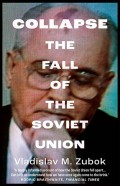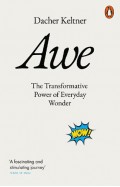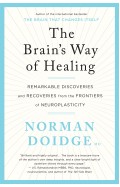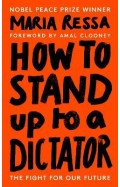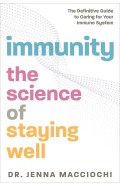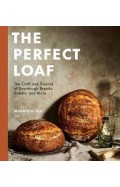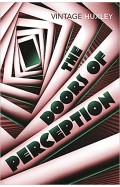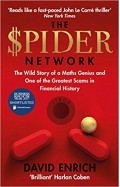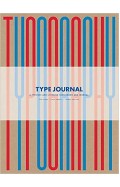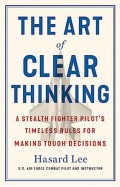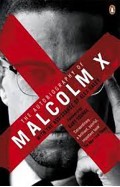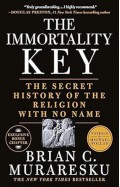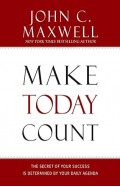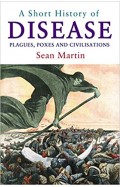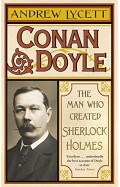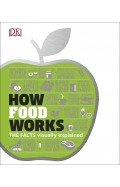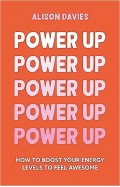- Home
- Categories
- Non Fiction
- Philosophy
- Do We Have To Work?: A Primer for the 21st Century: 0 (The Big Idea)
Do We Have To Work?: A Primer for the 21st Century: 0 (The Big Idea)
By: Matthew Taylor
-
Rs 4,160.75
- Rs 4,895.00
- 15%
You save Rs 734.25.
Due to constant currency fluctuation, prices are subject to change with or without notice.
This book posits that we are approaching a new era of work. It outlines some of the factors that might lead to change, including the adoption of forms of universal basic income, the growth of the zero- or low-cost economy (renewable energy, user-generated content, community mutual support), and the growth of self-employment and quasi-autonomous ways of working (including from home) in organizations. It concludes that such changes might foster a more fundamental shift: a growing intolerance to the idea of work as a burden and a desire to transform it from something imposed on us into simply the means by which we live our best lives together, recreating in modern conditions with modern resources, a prehistoric unity between being and working.
With 190 illustrations in colour
This book posits that we are approaching a new era of work. It outlines some of the factors that might lead to change, including the adoption of forms of universal basic income, the growth of the zero- or low-cost economy (renewable energy, user-generated content, community mutual support), and the growth of self-employment and quasi-autonomous ways of working (including from home) in organizations. It concludes that such changes might foster a more fundamental shift: a growing intolerance to the idea of work as a burden and a desire to transform it from something imposed on us into simply the means by which we live our best lives together, recreating in modern conditions with modern resources, a prehistoric unity between being and working.
With 190 illustrations in colour
Do We Have To Work?: A Primer for the 21st Century: 0 (The Big Idea)
By: Matthew Taylor
Rs 4,160.75 Rs 4,895.00 Ex Tax :Rs 4,160.75
Zubin Mehta: A Musical Journey (An Authorized Biography)
By: VOID - Bakhtiar K. Dadabhoy
Rs 892.50 Rs 1,050.00 Ex Tax :Rs 892.50
The Origins of Political Order From Prehuman Times to the French RevolutioN
By: Francis Fukuyama
Rs 4,045.50 Rs 4,495.00 Ex Tax :Rs 4,045.50
Manning Up: How the Rise of Women Has Turned Men into Boys
By: Kay Hymowitz
Rs 845.75 Rs 995.00 Ex Tax :Rs 845.75
The Obama Syndrome: Surrender At Home War Abroad
By: Tariq Ali
Rs 1,100.75 Rs 1,295.00 Ex Tax :Rs 1,100.75
The Quest For Meaning: Developing A Philosophy Of Pluralism
By: Tariq Ramadan
Rs 1,185.75 Rs 1,395.00 Ex Tax :Rs 1,185.75
The Pakistan US Conundrum Jihadists The Military And The People The Struggle For Control
By: Yunas Samad
Rs 1,185.75 Rs 1,395.00 Ex Tax :Rs 1,185.75
An Enemy We Created: The Myth Of The Taliban Al Qaeda Merger In Afghanistan 19702010
By: Alex Strick van Linschoten
Rs 4,197.50 Rs 8,395.00 Ex Tax :Rs 4,197.50
WikiLeaks: Inside Julian Assanges War on Secrecy
By: David Leigh & Luke Harding
Rs 637.50 Rs 850.00 Ex Tax :Rs 637.50
No similar books from this author available at the moment.
Umar bin Al-Khattab (The Second Caliph of Islam)
By: Abdul Basit Ahmad
Rs 315.00 Rs 350.00 Ex Tax :Rs 315.00
Collapse: The Fall of the Soviet Union
By: Vladislav M. Zubok
Rs 7,645.50 Rs 8,495.00 Ex Tax :Rs 7,645.50
Awe - The Transformative Power of Everyday Wonder
By: Dacher Keltner
Rs 2,515.50 Rs 2,795.00 Ex Tax :Rs 2,515.50
The Brain's Way of Healing - remarkable discoveries and recoveries from the frontiers of neuroplasticity
By: Norman Doidge
Rs 3,595.50 Rs 3,995.00 Ex Tax :Rs 3,595.50
WE COULD HAVE BEEN FRIENDS MY FATHER A
By: Raja Shehadeh
Rs 2,965.50 Rs 3,295.00 Ex Tax :Rs 2,965.50
IMMUNITY: The Science of Staying Well
By: Dr Jenna Macciochi
Rs 1,865.75 Rs 2,195.00 Ex Tax :Rs 1,865.75
The Perfect Loaf - The Craft and Science of Sourdough Breads, Sweets, and More
By: Maurizio Leo
Rs 8,095.50 Rs 8,995.00 Ex Tax :Rs 8,095.50
The Doors of Perception: And Heaven and Hell
By: Aldous Huxley
Rs 1,270.75 Rs 1,495.00 Ex Tax :Rs 1,270.75
The Spider Network: The Wild Story of a Maths Genius and One of the Greatest Scams in Financial History
By: David Enrich
Rs 3,865.50 Rs 4,295.00 Ex Tax :Rs 3,865.50
How to Disappear: A Photographic Portrait of Radiohead
By: Colin Greenwood
Rs 5,845.50 Rs 6,495.00 Ex Tax :Rs 5,845.50
Type Journal: A Typeface and Lettering Sketchbook
By: Steven Heller
Rs 2,545.75 Rs 2,995.00 Ex Tax :Rs 2,545.75
The Art of Clear Thinking: A Fighter Pilot’s Guide to Making Tough Decisions
By: Hasard Lee
Rs 3,865.50 Rs 4,295.00 Ex Tax :Rs 3,865.50
Conditions of Love - The Philosophy of Intimacy
By: John Armstrong
Rs 2,515.50 Rs 2,795.00 Ex Tax :Rs 2,515.50
Travellers in the Golden Realm - How Mughal India Connected England to the World
By: Lubaaba Al-Azami
Rs 3,415.50 Rs 3,795.00 Ex Tax :Rs 3,415.50
The Immortality Key - The Secret History of the Religion with No Name
By: Brian C. Muraresku
Rs 5,575.50 Rs 6,195.00 Ex Tax :Rs 5,575.50
Make Today Count - The Secret of Your Success Is Determined by Your Daily Agenda
By: John C. Maxwell
Rs 3,235.50 Rs 3,595.00 Ex Tax :Rs 3,235.50
The Leap to Leader - How Ambitious Managers Make the Jump to Leadership
By: Adam Bryant
Rs 8,005.50 Rs 8,895.00 Ex Tax :Rs 8,005.50
The Disappearance of Josef Mengele - A Novel
By: Olivier Guez
Rs 3,505.50 Rs 3,895.00 Ex Tax :Rs 3,505.50
The Clash of Civilizations and the Remaking of World Order
By: Samuel P. Huntington
Rs 2,695.50 Rs 2,995.00 Ex Tax :Rs 2,695.50
The Maths Adventurers Build a Friendship
By: Sital Gorasia Chapman
Rs 2,155.50 Rs 2,395.00 Ex Tax :Rs 2,155.50
Conan Doyle: The Man who Created Sherlock Holmes
By: Andrew Lycett
Rs 3,415.50 Rs 3,795.00 Ex Tax :Rs 3,415.50
Behind the Mask: My Autobiography – Winner of the 2020 Sports Book of the Year
By: Tyson Fury
Rs 2,515.50 Rs 2,795.00 Ex Tax :Rs 2,515.50
Crossing the Desert - The Power of Embracing Life's Difficult Journeys
By: Payam Zamani
Rs 6,655.50 Rs 7,395.00 Ex Tax :Rs 6,655.50
How Food Works: The Facts Visually Explained (DK)
By: DK
Rs 4,405.50 Rs 4,895.00 Ex Tax :Rs 4,405.50
From a Clear Blue Sky Surviving the Mountbatten Bomb
By: Timothy Knatchbull
Rs 700.00 Ex Tax :Rs 700.00
Power Up - How to Feel Awesome by Protecting and Boosting Positive Energy
By: Alison Davies
Rs 2,715.75 Rs 3,195.00 Ex Tax :Rs 2,715.75
Zubin Mehta: A Musical Journey (An Authorized Biography)
By: VOID - Bakhtiar K. Dadabhoy
Rs 892.50 Rs 1,050.00 Ex Tax :Rs 892.50
Do We Have To Work?: A Primer for the 21st Century: 0 (The Big Idea)
By: Matthew Taylor
Rs 4,160.75 Rs 4,895.00 Ex Tax :Rs 4,160.75












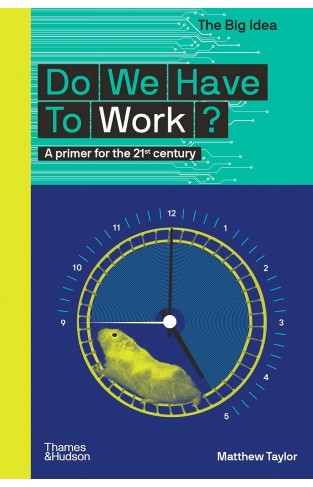
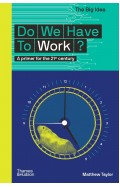
-120x187.jpg?q6)





-120x187.jpg?q6)



-120x187.jpg?q6)








